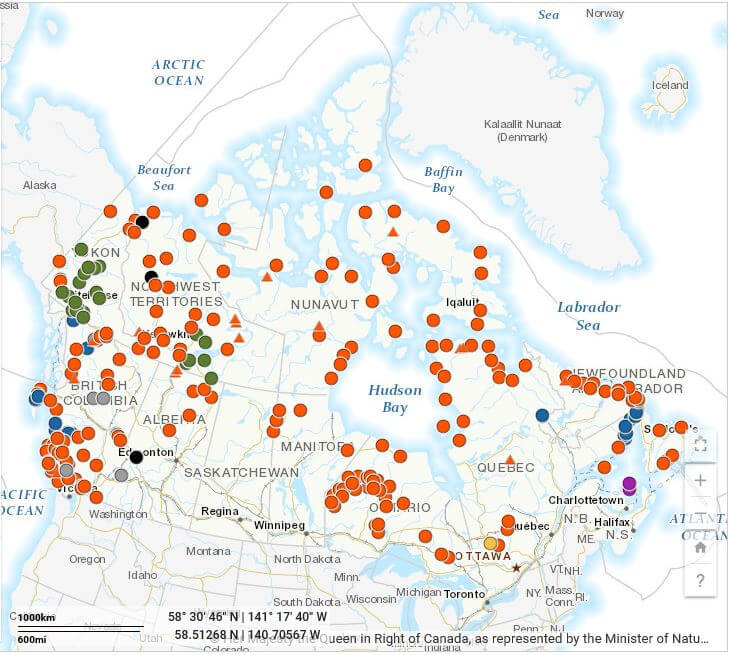Reducing reliance on diesel in rural and remote communities will decrease Canada’s carbon footprint, support climate change adaptation, contribute to healthier communities, and provide new opportunities for jobs and economic growth — this, according to the Government of Canada.

Find out which energy sources are used by rural and remote communities by visiting the Atlas of Canada – Remote Communities Energy Database.
The Honorable Jim Carr, Canada’s Minister of Natural Resources, announced a call for proposals for the Clean Energy for Rural and Remote Communities Program. The program will provide approximately $220 million in funding for initiatives to reduce reliance on diesel fuel in rural and remote communities, the majority of which are Indigenous.
“We are pleased to work together with the provinces and territories on these initiatives to promote cleaner, more reliable energy supply in rural and remote communities, reduce greenhouse gas emissions in Canada’s North and create new opportunities for social and economic development in these communities,” said Carr. “Our government’s green infrastructure funding will also help to ensure that Canada is a global leader in the transition to a greener economy.”
The funding builds on more than $53 million provided through Indigenous and Northern Affairs Canada and is complemented by Infrastructure Canada’s $400 million Arctic Energy Fund, which is specific to the territories to help improve energy security in the North by replacing or upgrading aging fossil fuel energy infrastructure.
The announcement is part of the government’s larger vision for Canada’s clean energy future, which will provide $21.9 billion over 11 years to support green infrastructure, drive clean growth and combat climate change. Funding of more than $600 million has been announced in the past few weeks for projects that include renewable power, smart electricity grids, alternative fuel charging stations and more energy efficient homes.
The announcement is also complemented by two milestone initiatives: the introduction of Bill C-69 on February 8 to modernize Canada’s environmental assessment and regulatory processes, and this week’s launch of the Rights and Recognition Framework consultations. Both of these watershed initiatives reinforce Canada’s efforts to renew and repair its relationship with Indigenous peoples.
“The Government of Canada is committed to advancing clean energy and supporting the leadership of Indigenous and remote communities in the North in their own clean energy transition,” said Carolyn Bennett
Minister of Crown-Indigenous Relations and Northern Affairs. “The Government’s investments in green infrastructures are essential to achieve these goals while establishing a clean growth economy and healthier communities. There is still a long way to go, but we are determined to get there, working in collaboration with Indigenous leadership, territorial governments and all our partners.”
Canada is committed to clean energy, innovation and energy security as it continues to move toward a low-carbon economy. Through Generation Energy, Canadians made it clear that renewable energy and energy efficiency are critical components of Canada’s energy mix. The Government of Canada is providing national leadership on climate change and growing Canada’s economy by making investments in green infrastructure, clean technologies and lower-carbon transportation options.
Filed Under: News, Policy




